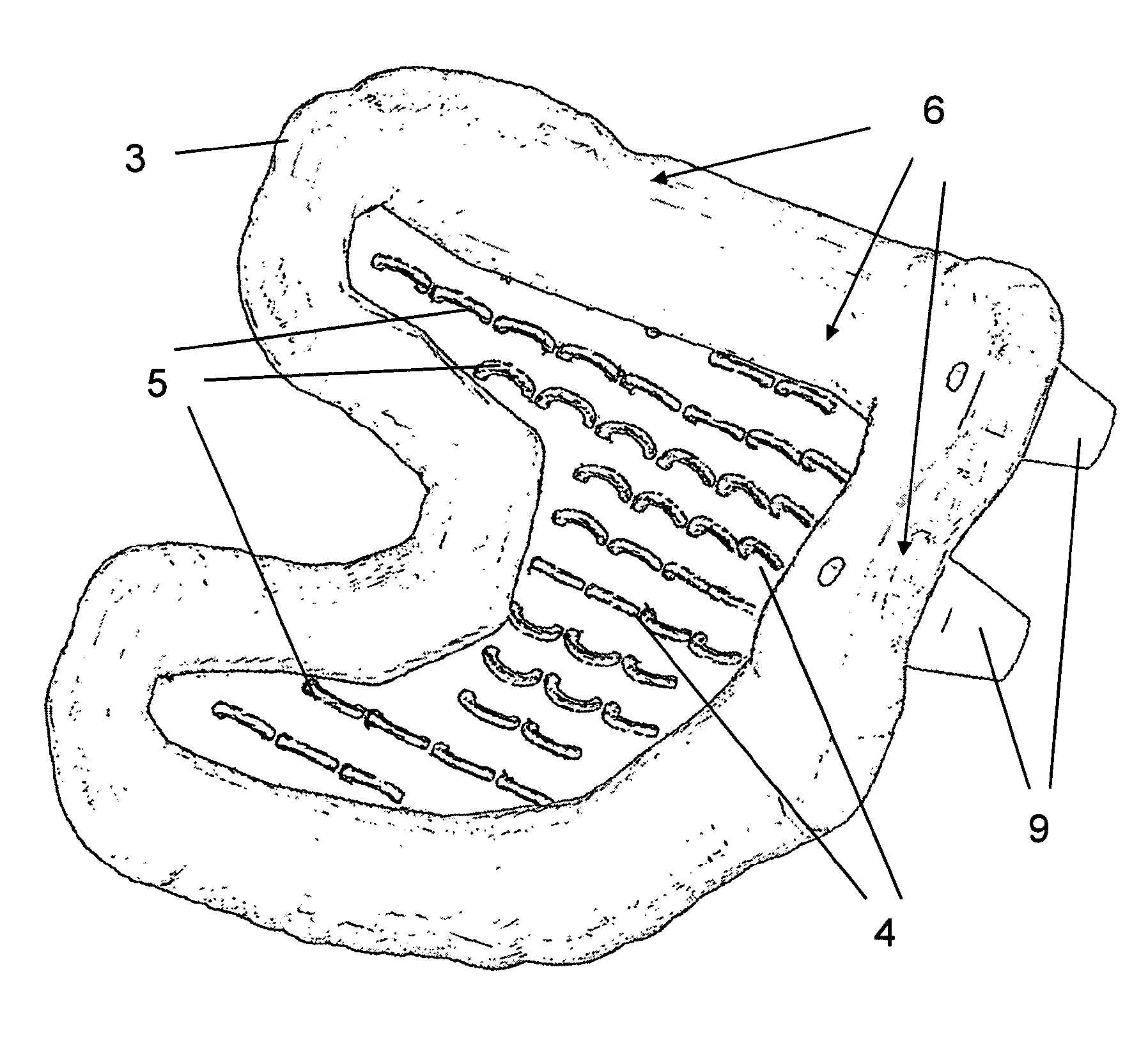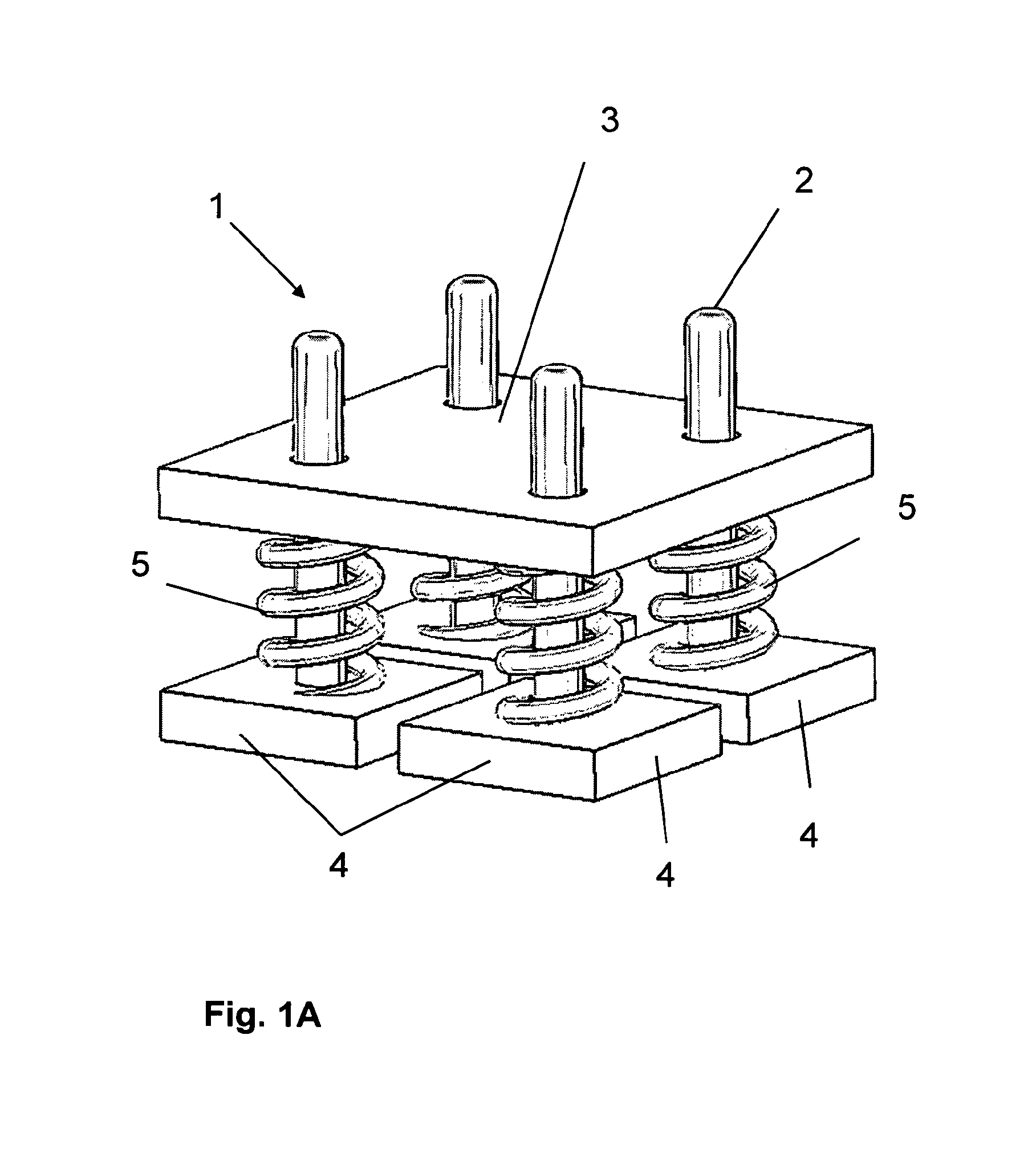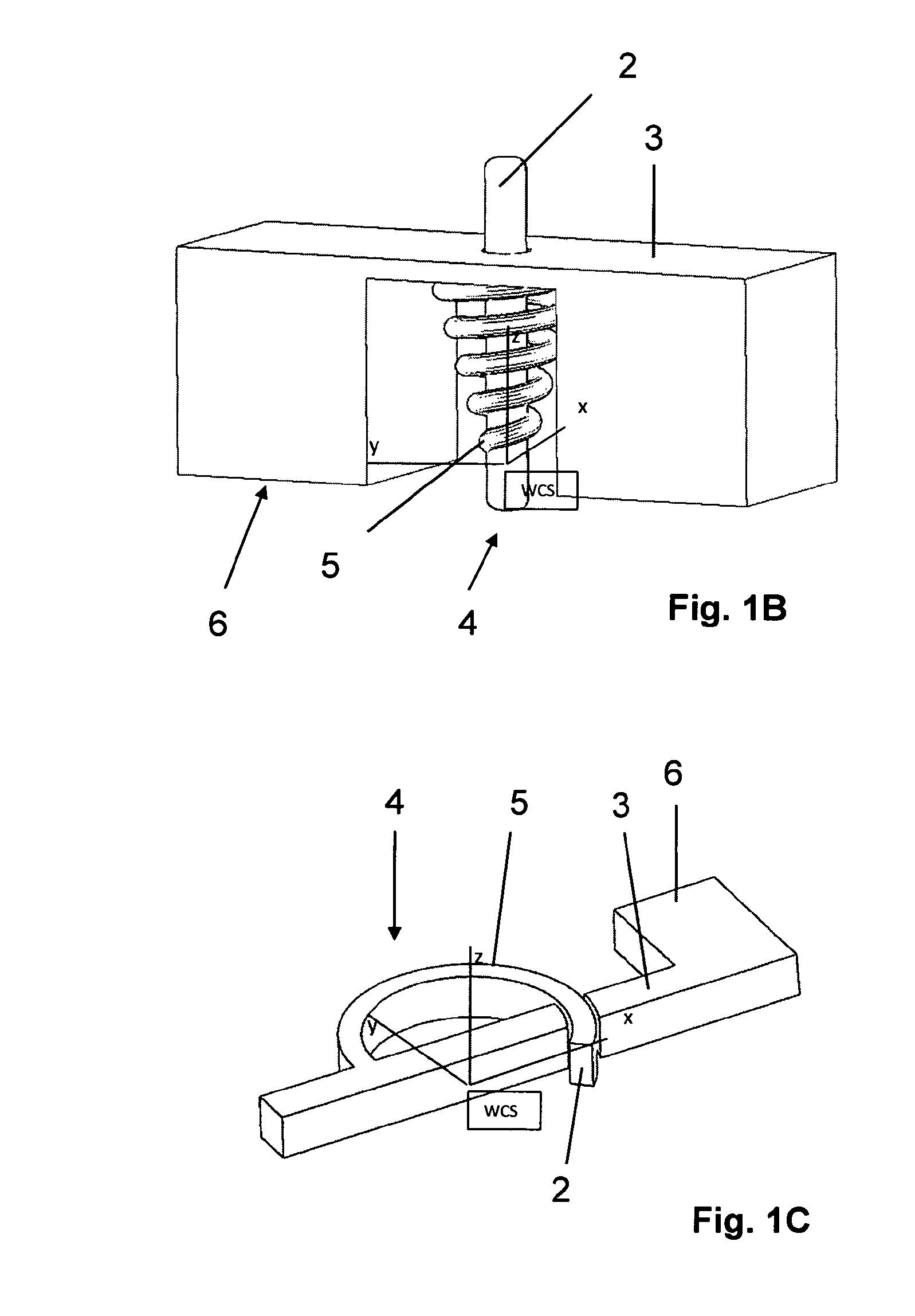Adaptable therapeutic, diagnostic or surgical guide
a technology of therapeutic and diagnostic guide, applied in the field of medical science, can solve the problems of guide not having a unique fit, guide may not fit in certain regions, image may be unclear in certain regions,
- Summary
- Abstract
- Description
- Claims
- Application Information
AI Technical Summary
Benefits of technology
Problems solved by technology
Method used
Image
Examples
Embodiment Construction
[0052]The present invention will be described with respect to particular embodiments and with reference to certain drawings but the invention is not limited thereto but only by the claims. The drawings described are only schematic and are non-limiting.
[0053]FIG. 1A is a schematic view of a feedback device for use in a surgical guide 1 according to the present invention. For a better understanding of the general working principle, the elements of the inventive guide are shown in a very simplified schematic manner.
[0054]An adaptable surgical guide 1 for an intra-operative adjustment of a contact element to a pre-planned position comprises the feedback device that has a first reference element 3 shown as a plate structure. The feedback device is shown to be a cut plane defined by the surfaces of the individual members attached to the contact elements 4. Four contact elements 4 are connected to the reference plate 3 via individual elastic elements 5 provided between the reference elemen...
PUM
| Property | Measurement | Unit |
|---|---|---|
| specific area | aaaaa | aaaaa |
| area | aaaaa | aaaaa |
| elastic | aaaaa | aaaaa |
Abstract
Description
Claims
Application Information
 Login to View More
Login to View More - R&D
- Intellectual Property
- Life Sciences
- Materials
- Tech Scout
- Unparalleled Data Quality
- Higher Quality Content
- 60% Fewer Hallucinations
Browse by: Latest US Patents, China's latest patents, Technical Efficacy Thesaurus, Application Domain, Technology Topic, Popular Technical Reports.
© 2025 PatSnap. All rights reserved.Legal|Privacy policy|Modern Slavery Act Transparency Statement|Sitemap|About US| Contact US: help@patsnap.com



